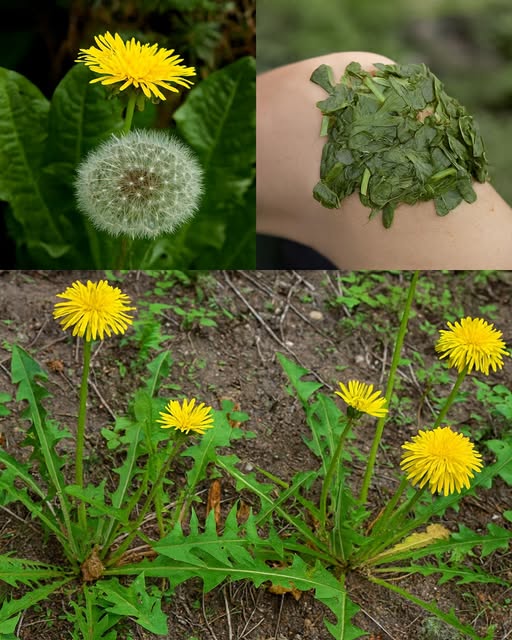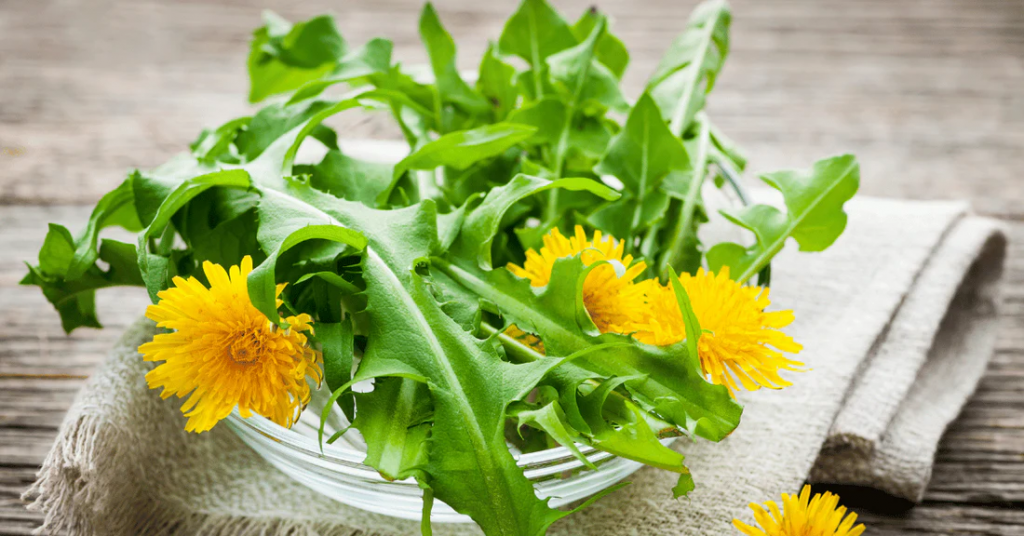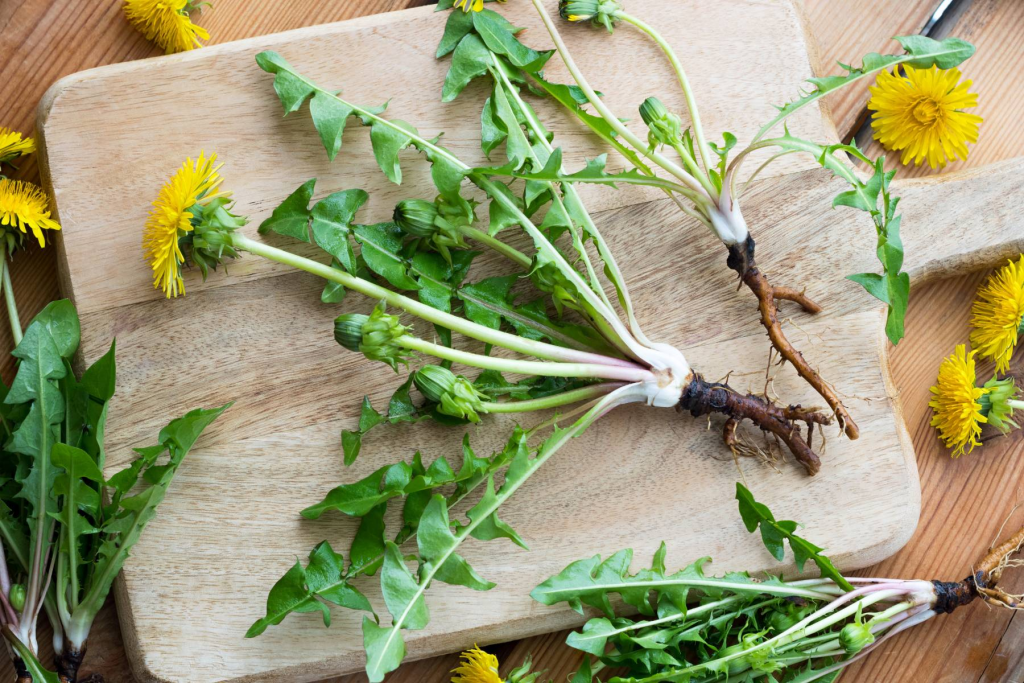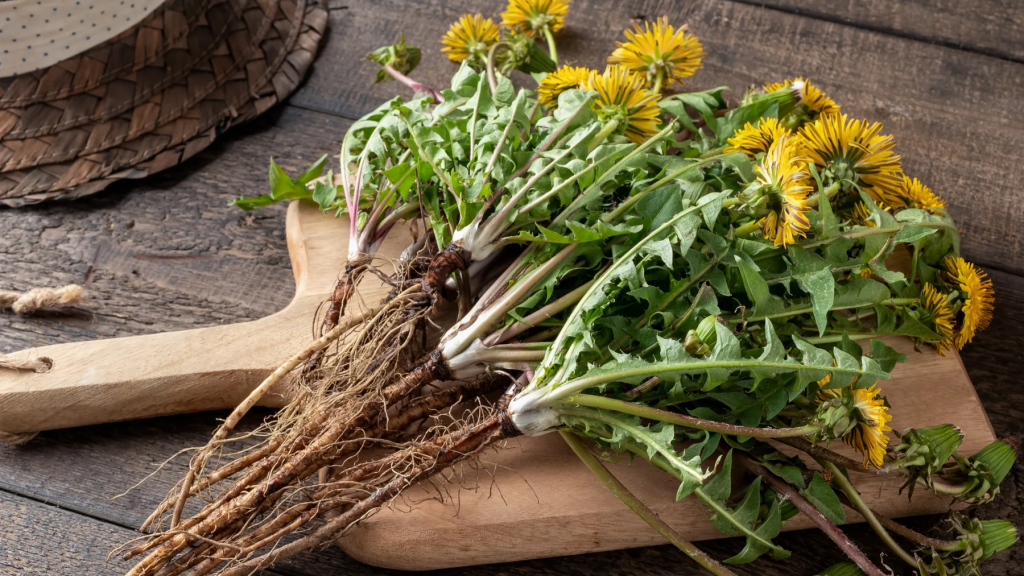What if one of the most powerful plants for your health is growing right outside your door, often dismissed as a pesky weed? Surprisingly, dandelion (Taraxacum officinale) is far more than a common garden nuisance. According to the USDA, dandelions are loaded with vitamins A, C, K, and minerals like iron, calcium, and potassium—nutrients many people lack in their daily diet.
For centuries, cultures around the world have turned to dandelion as a natural remedy for liver health, digestion, inflammation, and even detoxification. Yet in modern times, most people pull it out of their yards without realizing its extraordinary potential.
In this article, you’ll discover why dandelion is considered one of the most powerful plants in the world, how science supports its uses, and practical ways you can incorporate it into your diet and wellness routine. By the end, you may never look at this humble yellow flower the same way again.

The Nutritional Power of Dandelion
Dandelion is often underestimated, but its nutritional density rivals some of the most expensive superfoods on the market.
Key Nutrients in Dandelion
| Part of Plant | Nutrients | Health Benefits |
|---|---|---|
| Leaves | Vitamin A, C, K, calcium, potassium | Supports bone health, boosts immunity |
| Roots | Inulin (prebiotic fiber), antioxidants | Promotes gut health, liver detoxification |
| Flowers | Polyphenols, antioxidants | Anti-inflammatory, immune-supportive |
Fun fact: A cup of fresh dandelion greens provides more vitamin A than a serving of carrots.

Everyday Example
Imagine replacing part of your salad mix with fresh dandelion greens. You’d not only add a slightly bitter, refreshing flavor but also flood your body with antioxidants that protect your cells from damage.
Traditional Uses Across Cultures
In Traditional Chinese Medicine (TCM)
Dandelion has long been used to cool the body, reduce inflammation, and support liver function.
In Native American Remedies
Tribes used dandelion infusions for digestive issues, kidney support, and skin problems.
In European Folk Medicine
For centuries, Europeans relied on dandelion root as a tonic for cleansing the blood and stimulating digestion.
These traditions align with modern scientific findings that highlight dandelion’s role in detoxification and inflammation reduction.

Modern Science on Dandelion’s Benefits
Liver and Detox Support
Research suggests dandelion root extract helps the liver process toxins more efficiently. Its antioxidants may shield liver cells from damage caused by alcohol or medications.
Case Example: A study published in the Journal of Ethnopharmacology showed that dandelion root extract reduced oxidative stress in the liver of lab animals, supporting the traditional claim of liver cleansing.
Digestive Health
The inulin fiber in dandelion root acts as a prebiotic, feeding healthy gut bacteria. A balanced gut microbiome not only improves digestion but also strengthens immunity and mood regulation.
Anti-Inflammatory and Immune Benefits
Dandelion extract has been shown to reduce inflammatory markers, which may benefit conditions like arthritis and chronic inflammation. Its antioxidants also support the immune system, helping the body fight infections.
Blood Sugar and Cholesterol
Preliminary studies indicate dandelion compounds may help regulate blood sugar and reduce cholesterol levels, though more human studies are needed.

Practical Ways to Use Dandelion
1. Dandelion Tea
- Steep dried leaves or roots in hot water for 10–15 minutes.
- Benefits: Gentle detox, digestive aid, calming evening drink.
2. Fresh Greens in Meals
- Add young leaves to salads, smoothies, or sauté them like spinach.
- Benefits: Rich source of vitamins A and K, supports eye and bone health.
3. Dandelion Coffee
- Roasted dandelion root has an earthy, coffee-like flavor without caffeine.
- Benefits: Liver support, digestive boost, healthier coffee alternative.
4. Supplements and Extracts
- Available in capsules or tinctures.
- Benefits: Concentrated dosage for targeted support.
Tip: Always ensure your dandelion is harvested from pesticide-free areas to avoid contamination.

Everyday Wellness Applications
- For Busy Professionals: A cup of dandelion tea in the evening helps digestion after heavy meals.
- For Older Adults: Regular use supports bone strength and liver health naturally.
- For Families: Dandelion greens in salads teach kids that healthy eating can come from the garden.
Real-Life Example: A woman who swapped her afternoon coffee with roasted dandelion root tea reported less bloating and improved energy levels within a few weeks.
Precautions and Safety
While dandelion is safe for most people, there are a few considerations:
- Those with ragweed allergies may experience mild reactions.
- It can interact with diuretics, blood thinners, or certain antibiotics.
- Pregnant or breastfeeding women should consult a healthcare provider before use.
Conclusion
Quick FAQs
- Can I eat dandelions from my yard? Yes, if they are pesticide-free and not exposed to pollution.
- How often can I drink dandelion tea? 1–2 cups per day is generally safe for most adults.
- Is dandelion safe for children? Small amounts in food are safe, but consult a pediatrician before giving supplements.
Dandelion is more than just a weed—it is a nutrient-dense, time-tested plant with powerful health benefits for the liver, digestion, immunity, and beyond. By embracing dandelion as part of your wellness routine, you can tap into one of nature’s most underrated treasures.
Disclaimer: This content is for informational purposes only and does not replace professional medical advice. Always consult your healthcare provider before making significant dietary or lifestyle changes.




